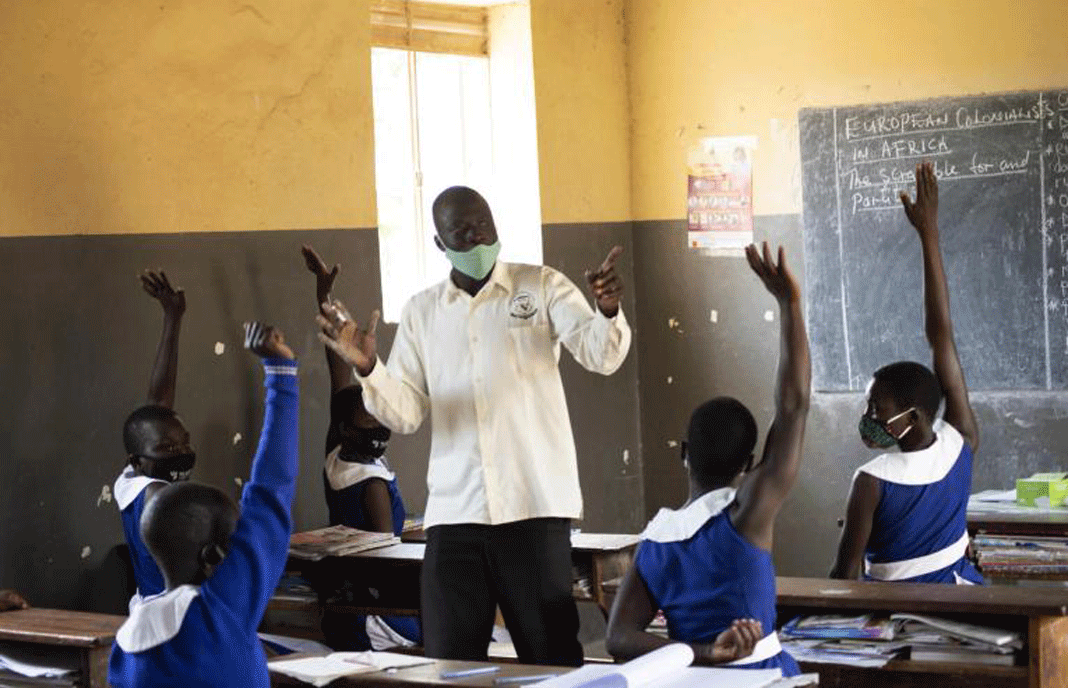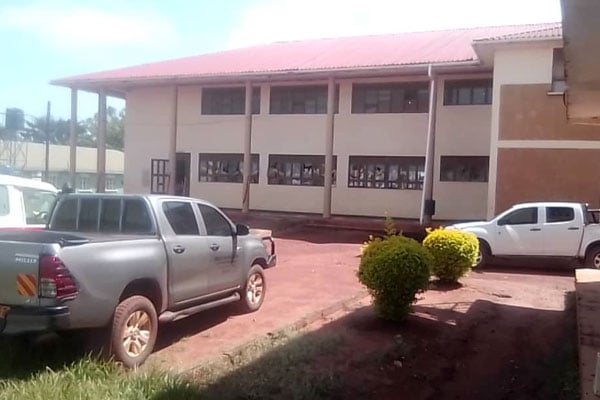Prime
180,000 teachers without degrees risk being sacked

A teacher conducts a lesson in Uganda during the Covid-19 era. PHOTO/FILE/COURTESY
What you need to know:
- The authorities say the move will increase the quality of education in the country.
The teachers in Uganda risk losing their jobs unless they upgrade to degree level in the next eight years.
A 2020 baseline survey by the Ministry of Education, established that 180,000 teachers qualified as diploma holders or below.
Of these, 126,000 are Grade III, while 65,000 are diploma holders, some of whom are deployed in both public and private schools. The country has a total of 360,000 teachers.
The commissioner for teacher education training and development at the Education ministry, Mr Jonathan Kamwana, explained that not all the teachers are in active practice.
“We did a baseline survey from training institutions, so others have taken on other professions, while others have died. So the figures are of those who have been trained, others could even be having degrees now, but we took the numbers for purposes of training,” he explained in a telephone interview with Monitor yesterday.
Mr Kamwaana further explained that those close to retirement age will also not be required to upgrade, but all those to be admitted by next year must be degree holders. The issue returned to the fore as the country marks National Teachers Day today.
ALSO READ: Govt set to recruit 2,600 new teachers
In a statement to officially announce the celebrations, the State minister for Higher Education, Mr John Chrisostom Muyingo, re-echoed that government would not rescind the requirement as contained in the National Teacher Policy that the Cabinet approved in 2019, despite the challenges and misgivings over the last two years.
Mr Muyingo said this fits with this year’s theme, “The transformation of education begins with the teacher.
“Education is crucial for the development of our country, and to get a quality outcome, we must first equip our teachers. You cannot give what you do not have. If we want to develop, we must have quality education, and the teacher is at the centre of this. That is why there are changes in how our teachers are trained, teaching methods and teachers’ welfare. In 10 years, every teacher must have a degree,” Mr Muyingo said while addressing journalists at the Uganda Media Centre in Kampala.
The Uganda National Teachers’ Union (Unatu) secretary general, Mr Filbert Baguma, said while the shift is welcome as a means to improve the quality of education, government needs to intervene to facilitate the teachers financially either by subsidising the upgrading process or offering a loan scheme.
To this, Mr Muyingo said the Education ministry committed an unspecified amount of resources, which have previously been used to train primary school teachers at certificate level and secondary school teachers at diploma level, to support the upgrading of holders of the Grade III and Early Childhood Development teachers’ certificate to diploma level.
This year’s celebrations were deffered from the gazetted October 5.
President Museveni as chief guest, along with hundreds of invited guests, are expected to grace the event at Kololo Ceremonial Grounds.
World Teachers Day was gazetted by Unesco to, among others, provide a platform to take stock of achievements and raise awareness around the challenges facing teachers and their role in the achievement of education targets.
Teachers’ welfare
Mr Baguma said the day is crucial in highlighting the challenges faced by the teachers. He said they will again prioritise the issue of salary enhancement for arts teachers, and the discrepancies created following the increase of science teachers’ salaries.
At the event to commemorate Teachers Day last year, President Museveni did not mince words about the government’s commitment to prioritise the remuneration of science teachers, which was implemented this financial year, and asked those from the humanities to wait.
Does a degree make a better teacher?
Educationist Fagil Monday expressed limited enthusiasm at the impact the new policy will have on the quality of education in the country.
Mr Mandy also questions what informed the new policy
“The degree as we are offering it now may not make a better teacher. I have been a trainer of teachers, so it will depend on what the degree contains,” Mr Mandy said
He added: “I do not think we were told what was missing in a teacher that a degree would fix. What will you put in the degree training programme to guide you? Degree holders have not necessarily been better workers.”
Mr Vincent Elong, the chairperson of the Uganda Professional Science Teachers Union, said only motivation in form of good pay and better working conditions will improve the quality of education. He also wondered how the teacher, earning a meagre salary, will be able to afford university education while meeting personal obligations.
“It is good for the teacher but I do not think it will impact the quality of education. Government needs to reconsider this. We have Grade III teachers who teach better, especially at the lower level,” Mr Elong said.
He added: “Teachers just need to be motivated, and be paid better. What motivation is going to cause them to want to upgrade? There are also some of those who are already trained but are not employed, teachers with Masters degrees are paid as diploma holders. What will motivate them?
However, Prof Barnabas Nawangwe, the Makerere University Vice Chancellor, differs from the two, saying:
“Every added qualification makes a person more versatile and more knowledgeable. The more knowledge a person has the better they are at handling their business and supporting other people. A teacher with a degree is certainly more knowledgeable than one without a degree. A teacher with a degree has better capacity to explain concepts than one without a degree. The decision is, therefore, positive.”
*Additional reporting by Priscilla Maloba




